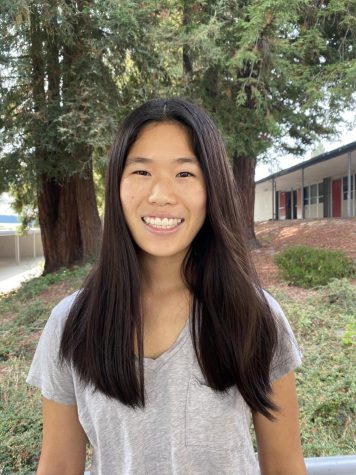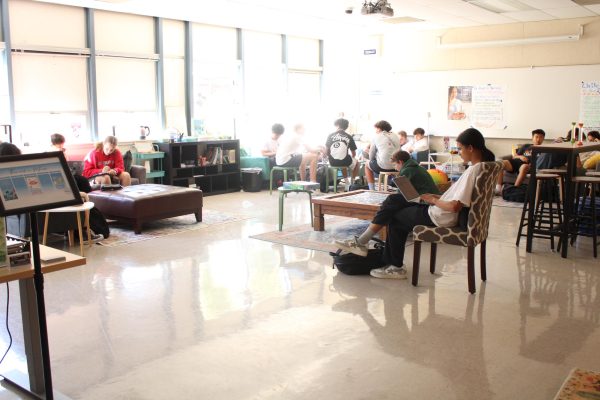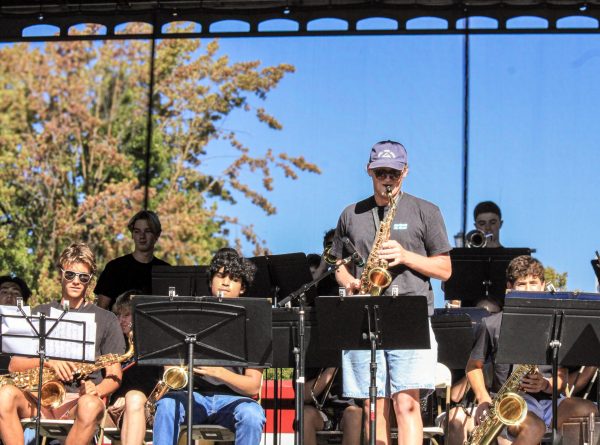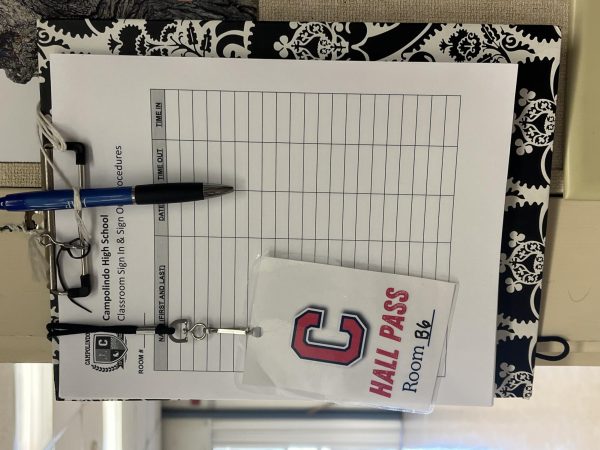Ruby Bridges’ Visit Highlights Progress, Need for Unity
Civil rights activist Ruby Bridges, the 1st African American child to desegregate William Frantz Elementary School in New Orleans, Louisiana, spoke to the Campolindo community via Zoom on March 3.
Chair of the Campo Diversity & Inclusion Parents Group Ellide Smith 1st introduced the idea of having Bridges speak to the student body and reached out to her through her website.
“I gave a brief overview of the current climate of this community and our school, and expressed how much work and change has been involved to make it a safer, more inclusive environment for all of our students (not just most of our students),” said Smith. “Her people were super responsive and it’s been very easy figuring out how to coordinate this virtual school visit. The Campo faculty and admins were all on board from the onset.”
Associate Vice Principal Vanessa Knight moderated the discussion and question-and-answer segment of the event. Nearly 100 people attended.
“Hearing Ms. Bridges speak was such a memorable life experience that I will cherish and remember forever. Her words were inspiring and have motivated me to continue supporting our school to become more equitable for all to learn and grow,” said Knight.
At the event, Bridges talked about the events that led up to her 1st day of school and described her experience. Although Brown v. Board of Education, which established the unconstitutionality of racially segregated public schools, had been decided in 1954, it took a long time for states to implement the law. According to Bridges, the National Association of the Advancement of Colored People (NAACP) was searching for volunteers to participate in the integration movement and her parents, who were sharecroppers in a small town in Mississippi, wanted her to have the opportunity of education that they did not get.
Bridges recalled seeing mobs of people outside the school on her 1st day as she was escorted by federal marshals, but she thought that it looked like a Mardi Gras celebration.
As soon as Bridges enrolled at the school, white parents pulled their students out because they did not want them to learn alongside a Black child, and Bridges described the quietness of the building that day. Bridges was taught alone by Barbara Henry, and she recalled how Henry made her feel welcome while distracting her from the chaos outside the classroom.
Bridges highlighted student activism and how younger generations can make a difference. Of particular significance, Bridges said, is ensuring that people register to vote and encourage others to do the same because so many activists have been beaten and lost their lives fighting for that right.
Bridges added that it is important to acknowledge the progress that has been made and that everyone must stand united against evil.
Junior Natalie Barkey, who attended the event, said she “took away a lot of wisdom from Mrs. Bridges” and hopes that the “community was able to take Mrs. Bridges’ hope with them.”
“Although our country and communities have lots of work to do, Mrs. Bridges showed her aspirations due to the change the country has already endured since her childhood. Knowing our society is trending in the right direction should provide people with peace and hope for our further generations,” said Barkey.
The event closed with the song What the World Needs Now Is Love by Jackie DeShannon.
“I would love to thank Mrs. Bridges once again for taking her time to provide us with her fascinating perspective and insight. She is a lot of people’s [heroes] and hearing her speak was a once in a lifetime opportunity for lots of people who were there,” Barkey said.
“I hope that the Campolindo community [learned] the important message of spreading kindness and working together to make our school and community a better place. The collective work of many is most effective to make true change,” said Knight. “I hope that more students and staff attend these types of events so they can expand their knowledge and expend their perspective on the world.”
Your donation will support the student journalists of Campolindo High School's The Claw. Your contribution will allow us to produce more issues and cover our annual website hosting costs.

Amanda Young, a senior at Campolindo, enjoys raising awareness for social justice issues and being active in her community.
She is an intern with Stop...



